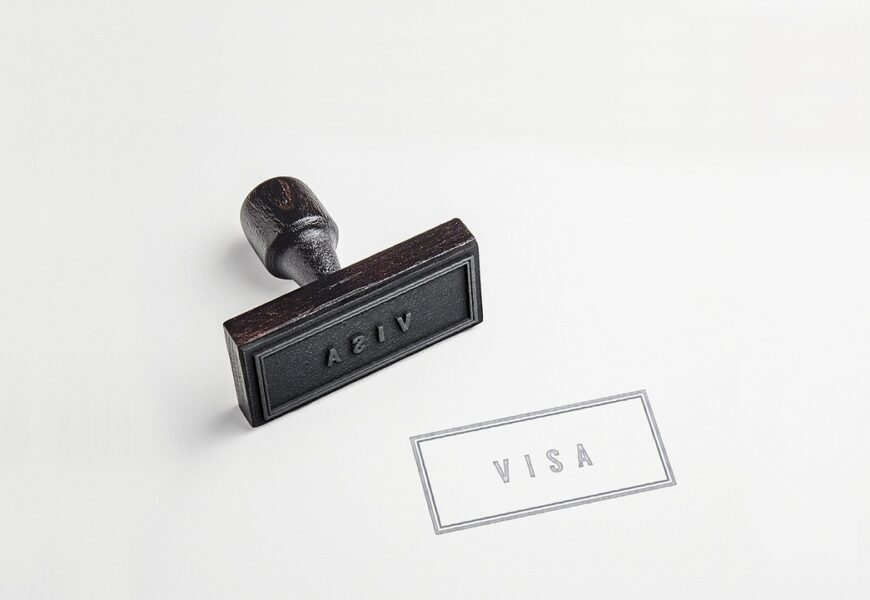Navigating Thailand’s visa system can be complex and challenging for international travelers and expatriates. Understanding the intricate details of visa requirements, application processes, and legal regulations is crucial for anyone planning to visit or reside in this vibrant Southeast Asian country. Thailand offers multiple visa categories designed to accommodate diverse travel and residency needs, ranging from short-term tourist visits to long-term professional assignments and retirement stays. Each visa type comes with specific documentation requirements, duration limitations, and unique application procedures that demand careful attention and thorough preparation.
Tourist Visa Options and Requirements
Thailand provides several tourist visa options catering to different traveler profiles and duration preferences. The most common tourist visa types include the Visa Exemption, Tourist Visa, and Multiple-Entry Tourist Visa. For many nationalities, a 30-day visa exemption is available upon arrival, allowing travelers to enter Thailand without prior visa application. This exemption applies to citizens from numerous countries, including the United States, United Kingdom, Canada, and many European nations. Travelers can enter through international airports or land borders, receiving an automatic 30-day stamp that permits leisure travel and basic tourism activities.
For those seeking longer stays, the Tourist Visa offers extended opportunities. Standard single-entry tourist visas are valid for 60 days and can be obtained from Thai embassies or consulates before traveling. Multiple-entry tourist visas provide even greater flexibility, allowing travelers to enter Thailand multiple times within a six-month period, with each entry permitting a 60-day stay. Applicants must typically demonstrate sufficient financial resources, return ticket, and valid passport with at least six months of remaining validity.
Work Permit and Non-Immigrant Visas
Professionals intending to work in Thailand must navigate the Non-Immigrant B Visa, which serves as the primary work visa category. This visa requires sponsorship from a registered Thai company and involves a comprehensive application process. Employers must provide extensive documentation, including company registration papers, detailed job descriptions, and proof of capital investment. Applicants need to submit educational certificates, professional qualifications, and a clean criminal background check. The initial work permit is typically granted for one year and can be renewed subject to continued employment and compliance with Thai labor regulations.
The Non-Immigrant B Visa process involves multiple steps, including obtaining a work permit from the Ministry of Labor and maintaining compliance with immigration regulations. Foreign professionals must register with local authorities, undergo medical examinations, and ensure their qualifications align with Thailand’s labor market requirements. Companies sponsoring foreign workers must demonstrate that the position cannot be filled by a Thai national and that the employee brings specialized skills beneficial to the organization.
Retirement and Long-Term Residency Visas
Thailand offers attractive retirement visa options for individuals over 50 years old seeking extended stays. The Non-Immigrant O-A Visa provides a renewable one-year permit for retirees meeting specific financial criteria. Applicants must demonstrate a minimum monthly income of 65,000 THB or maintain a bank deposit of at least 800,000 THB. This visa category has become increasingly popular among Western expatriates seeking affordable living conditions, high-quality healthcare, and a relaxed lifestyle in tropical environments.
Long-term residents can also explore the Elite Visa program, which offers premium residency packages ranging from five to twenty years. These packages provide expedited immigration processes, multiple-entry privileges, and additional concierge services. While more expensive, the Elite Visa represents an attractive option for high-net-worth individuals seeking seamless entry and extended stay opportunities in Thailand.
Visa Extension and Conversion Strategies
Understanding visa extension mechanisms is crucial for travelers and expatriates. Most tourist visas can be extended at local immigration offices for an additional 30 days, typically requiring proof of ongoing travel plans and sufficient financial resources. Work and retirement visas often involve more complex renewal processes, necessitating updated documentation and continued compliance with original visa requirements.
Visa conversions between different categories require careful navigation of bureaucratic procedures. Travelers must often exit and re-enter the country, submit comprehensive documentation, and meet specific eligibility criteria. Working with experienced visa consultants or thoroughly researching current regulations can significantly simplify these transitions and minimize potential complications.
Legal Compliance and Important Considerations
Strict adherence to Thai immigration regulations is paramount. Overstaying visa limits can result in substantial financial penalties, potential detention, and future entry restrictions. Travelers must maintain accurate documentation, monitor visa expiration dates, and proactively manage their legal status. Regular updates to immigration policies necessitate continuous research and awareness of current requirements.
Technological advancements have streamlined many visa application processes, with online platforms and digital submission systems reducing traditional bureaucratic hurdles. However, personal interviews, original document submissions, and in-person verifications remain critical components of comprehensive visa applications.
Navigating Thailand’s visa landscape requires patience, meticulous preparation, and a comprehensive understanding of complex regulatory frameworks. By carefully researching specific visa categories, maintaining accurate documentation, and staying informed about current immigration policies, travelers and expatriates can successfully manage their entry and residency in this dynamic and welcoming country. Whether pursuing short-term tourism, professional opportunities, or long-term retirement, Thailand offers diverse visa options accommodating various international visitors’ needs and aspirations.









